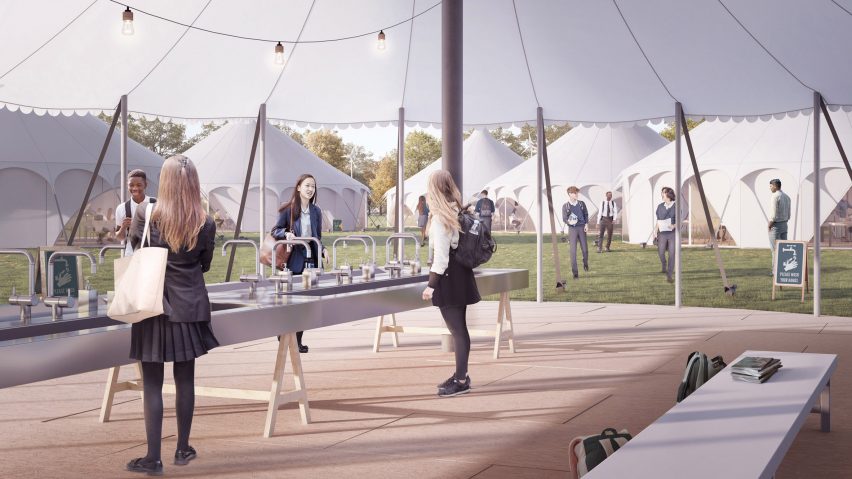
"Education spaces will never be the same again" says Roar report
Dubai-based studio Roar has forecasted various ways that Covid-19 will impact the design of schools and colleges, including a rejection of "vanity projects" and the introduction of WeWork-style classrooms.
A white paper by interior design firm Roar assesses a range of key issues that students and teachers may be presented with when returning to schools and colleges after the coronavirus pandemic.
The studio, which is led by Dezeen Awards 2020 judge Pallavi Dean, worked with a focus group of 10 professionals including designers, teachers, a doctor, a psychologist and academic researchers.
Together, Roar and the contributors have devised seven different industry perspectives on how the coronavirus pandemic will change the way education spaces are adapted and designed in the future, both in the short and long term.
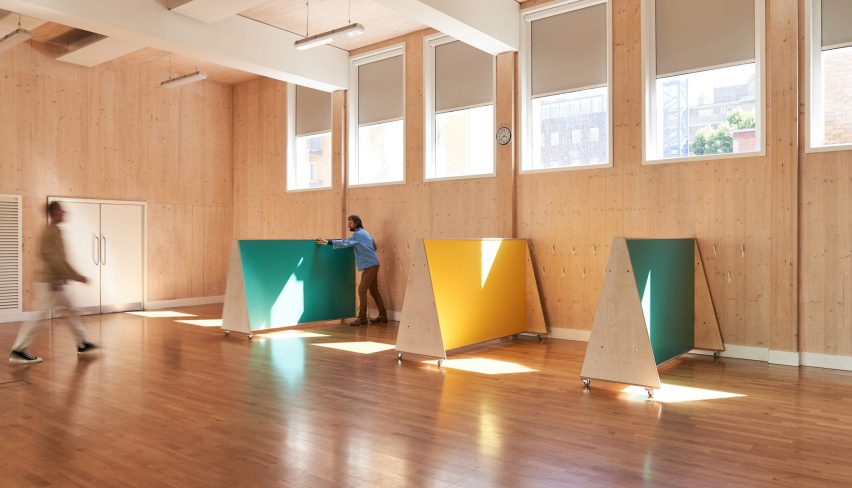
In the short-term the report states that the challenge for designers is to accelerate the capacity of schools and colleges by re-structuring existing classrooms to accommodate less children, or repurposing non-teaching spaces such as gyms and canteens.
"The sooner we can design Covid-proof schools, the sooner children will be allowed to return, and in greater numbers," said one panellist.
In extreme cases, designers could create modular, pre-fabricated classrooms that would be built in just a few months at a relatively low cost.
Age-appropriate graphics could also be added to the floors and walls to remind children to wash their hands and maintain social distancing rules.
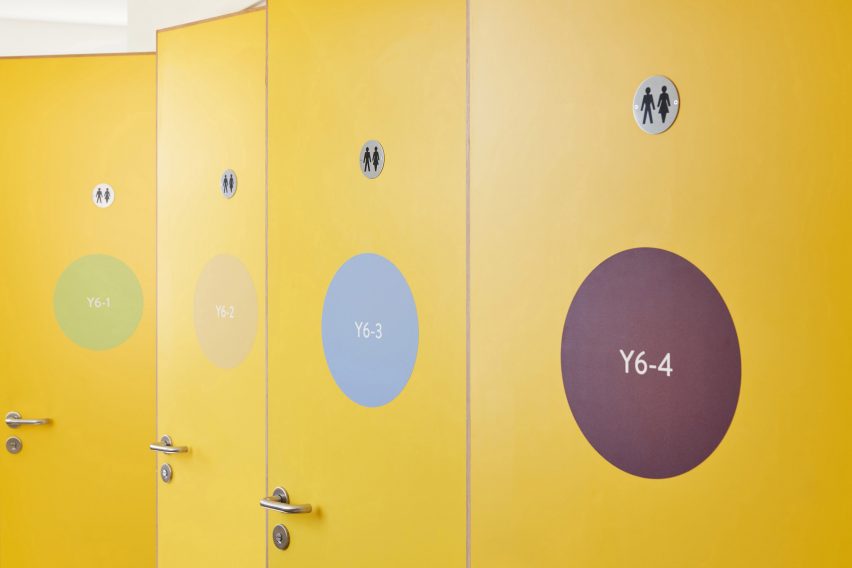
While the majority of survey respondents anticipated that schools will return to normal spacing and density by 2021, panellists still see Covid-19 as an opportunity to overhaul the design of education spaces, and believe the pandemic will leave a "long-term legacy".
This will see an end to so-called "vanity projects", with less focus on the cosmetic appearance of the exterior and more focus on the functionality of the internal spaces.
Interiors will also be designed with more flexibility in mind, using elements like folding walls to offer multi-purpose spaces, as well as moveable furniture and portable dividers that double up as book cases, for example.
As with many other building designs, touchless bathrooms and contactless access to all rooms would also be employed on a wider scale.
"Education spaces will never be the same again," said one panellist. "The coronavirus is a loud wake-up call for education," added American school architect Prakash Nair.
"We now have an opportunity to retool and re-energize schools and schooling so that it looks very different than the place we all learned in with rows upon rows of classrooms, each with one teacher gamely struggling to impart 'knowledge' to an increasingly disinterested audience," Nair continued.
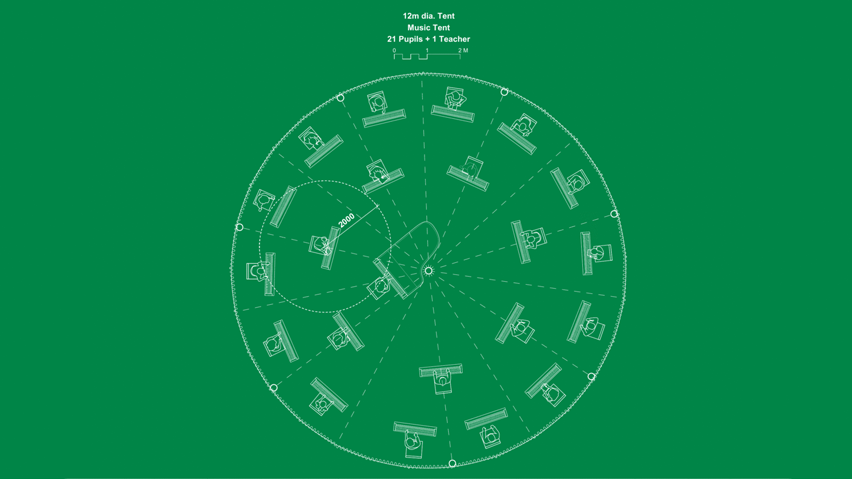
Both designers and teachers believe that schools and colleges could benefit from WeWork-type co-working spaces, including quiet pods for studying, one-on-one meeting spaces and small breakout areas.
This is a response to the change in pedagogy due to the coronavirus. As many students have had to adapt to virtual styles of learning, Roar's report predicts that schools will hold onto this by incorporating part-digital-part-physical teaching methods.
"Education design is, ultimately, the slave of education outcomes," said one of the report contributors. "Set the learning outcomes that students and teachers want to achieve, then work backwards to design a space that delivers those outcomes.
This will then open up existing educational spaces to classes that cannot be replicated at home, like science labs, sports facilities or music rooms.
"We can teach history and theory over Zoom – but we can't dissect mice or build drones," explained one panellist.
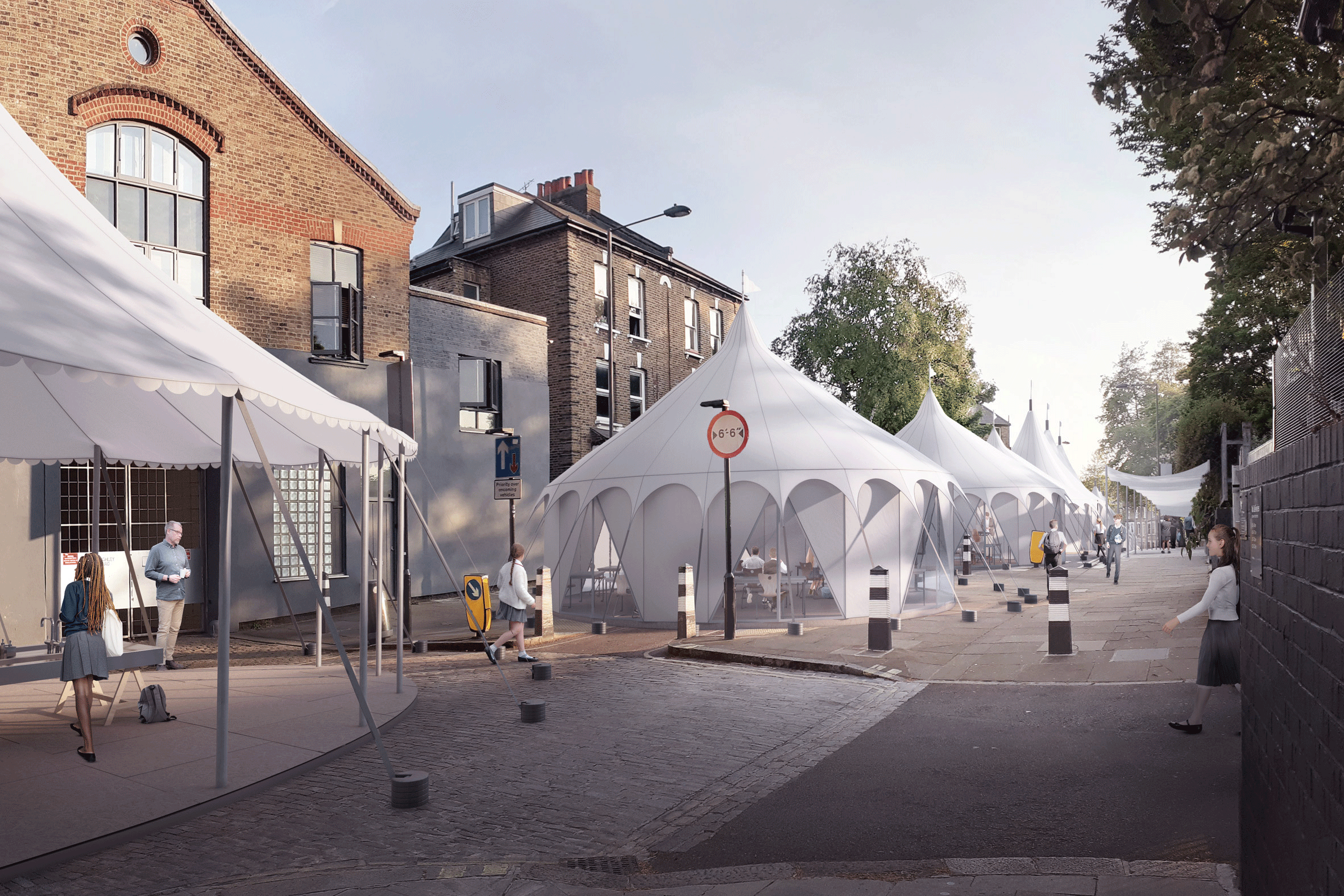
However, panellists noted that the design of a physical space can only do so much in addressing issues related to mental health as a result of a pandemic, and the "heavy-lifting" will have to be done by councillors, teachers and parents.
Design can play a supporting role though, by offering spaces to allow for one-on-one counselling and small group discussions, or providing smaller, "cocoon-like" spaces for more vulnerable children.
The roar report also suggests creating "cool" social spaces for older students. "Somewhere they can make and imprint those memories with their friends – even though we have Covid, it shouldn't rob them of that," explained one panelist.
While designers such as UNIT Fabrications and Curl la Tourelle Head are envisioning how social distancing will work in the education sector, other designers have predicted what hotels, restaurants and offices will be like post-Covid.
MASS Design Group, for instance, suggests that restaurants add barriers and remove bar seating, while The Manser Practice predicts hotels will introduce more touchless access, one-way systems and larger rooms with inbuilt gyms.